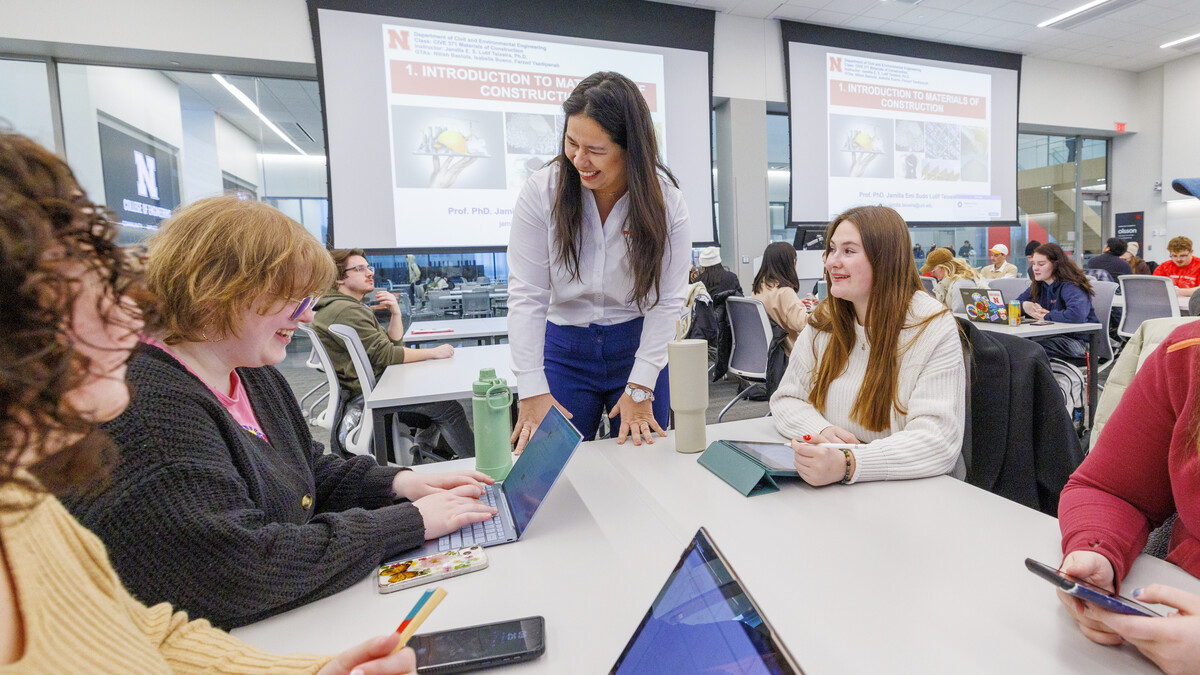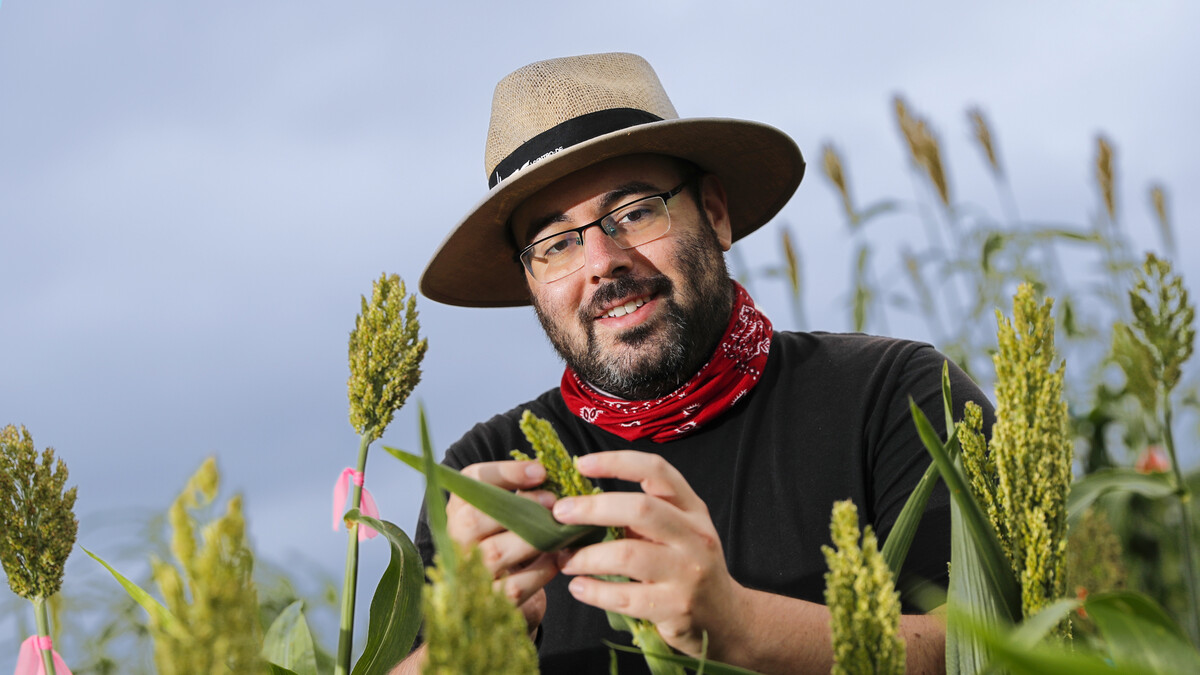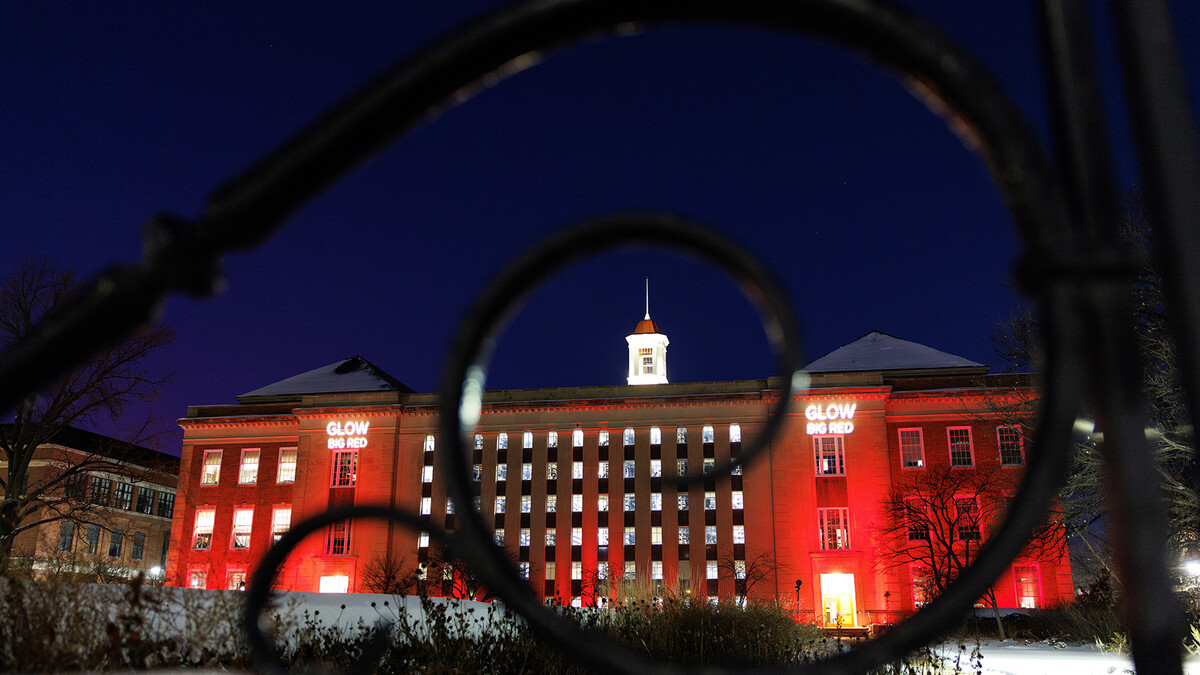
A new study from the University of Nebraska–Lincoln suggesting that Americans are making themselves sick over politics made national headlines in September. The coverage was among 70-plus news stories featuring Husker faculty, alumni and programs during the month.
Nearly 40% of Americans surveyed for the study said politics is stressing them out, and one in five reported losing sleep.
“Quite a few of the numbers jumped out at me,” Kevin Smith, Olson Chair and professor of political science at Nebraska and lead author of the study, told Nebraska Today. “Twenty percent have damaged friendships because of political disagreements. One in five report fatigue. And it’s a small (proportion), but 4% of the people in our sample said they’ve had suicidal thoughts because of politics. That translates into 10 million adults.”
The research is the first to comprehensively examine the physical and emotional costs of paying attention to and participating in political discourse. Previous examinations have focused almost solely on economic costs, such as time lost from work to vote or the monetary costs of supporting a campaign.
The study was co-authored by John Hibbing, Foundation Regent University Professor of political science at Nebraska; and Matthew Hibbing, associate professor of political science at the University of California, Merced.
Stories on the research have appeared in more than 240 media outlets, including the Boston Globe, Fast Company, NBC News, Newsweek, NPR, the Miami Herald and Today.com. Articles have also appeared in at least eight Nebraska media outlets, including KOLN/KGIN and the Lincoln Journal Star.
Other coverage:
The Johnny Carson Center for Emerging Media Arts at Nebraska opened its doors to students Aug. 26. The program is the first in the Big Ten to earn a Hewlett Packard/Educause Campus of the Future designation. Stories on the center appeared in the Lincoln Journal Star, McCook Gazette, Omaha World-Herald, York News-Times and Center for Digital Education.
Jeffrey Stevens, psychology, director of the Canine Cognition and Human Interaction Lab at Nebraska, was interviewed for a Sept. 2 Washington Post article on a new study showing that selective breeding has altered dogs’ brains. While calling the study’s premise “exciting,” he said there’s disagreement on how useful it is to map behaviors to breeds since there’s a lot of variation within breeds. He also noted the MRI scans used in the study weren’t performed as dogs were doing breed-specific tasks, making it difficult to draw big conclusions linking breed to behavior. The story was picked up by several media outlets, including the Boston Globe, Columbus Dispatch and San Francisco Gate.
Frans von der Dunk, space law, was featured in a Sept. 2 Sputnik News article on the risk of the further militarization of space. He said that risk “is larger than it has been for many years.”
Von der Dunk was quoted in a Sept. 12 How Stuff Works article on what happens if someone is murdered in space. The 1998 Intergovernmental Agreement states that on the International Space Station, jurisdiction generally falls to the state of nationality of the offender. However, von der Dunk wrote, “if the life or safety of persons with other nationalities and/or the safety of the space station is at stake, consultation should take place with the other countries concerned on which country should actually initiate prosecution.”
Von der Dunk was also quoted in a Sept. 13 iNews story on the Asgardia project — billionaire Igor Ashurbeyli’s plan to create the first nation in space. “At least at first sight, this is basically about a billionaire living out his fantasies to be emperor, king or president in outer space,” von der Dunk said. “As such, it does not bring the human settlement of outer space any nearer.”
Chigozie Obioma, English, has made the 2019 Man Booker Prize shortlist with his second novel, “An Orchestra of Minorities.” He also made the shortlist in 2015 with “The Fishermen.” Stories on the shortlist have appeared in more than 350 media outlets, including BBC News, The New York Times and NPR.
Kenneth Kiewra, educational psychology, wrote a Sept. 3 piece for The Conversation offering seven tips for taking better notes. The article was picked up by several media outlets, including the Houston Chronicle, Inc. and Quartz.
Brad Lubben, agricultural economics, was interviewed for a Sept. 3 Associated Press article on a recent Nebraska Farm Bureau estimate showing that the state’s farmers will lose $943 million in revenue this year. Lubben estimated that Nebraska farmers will receive roughly $460 million in aid from the first half of this year’s $16 billion federal aid program.
Jennine Capó Crucet, English and ethnic studies, discussed race, college, Disney World and her new book of essays, “My Time Among the Whites,” in a Vox interview published Sept. 4.
Crucet’s new essay collection was listed as one of six books to read in September by The A.V. Club.
An excerpt from the book was published Sept. 3 in The Atlantic.
Jay Storz and Tony Signore, both biological sciences, and colleagues have determined that breeding with the Tibetan wolf granted the Tibetan mastiff a hemogloblin architecture that catches and releases oxygen about 50% more efficiently than in other dog breeds. This allows the breed to survive the extreme altitude of the Himalayas. Stories on the research appeared on Live Science, Phys.org and Smithsonian.com.
Nkenge Friday has been named assistant vice chancellor for strategic initiatives with the university’s Office of Diversity and Inclusion. Diverse: Issues in Higher Education ran a Sept. 4 brief on her hiring.
Michelle Howell Smith, Nebraska Center for Research on Children, Youth, Families and Schools, is exploring the effects of equine therapy on children diagnosed with Attention Deficit/Hyperactivity Disorder, or ADHD. RFD-TV aired a Sept. 5 story on the research.
Dennis Ferraro, School of Natural Resources, was interviewed for a Sept. 5 Tri-State Livestock News article on preventing and treating rattlesnake bites. He said people should take 10 steps backward if they ever encounter a rattlesnake. In most cases, if people leave the snakes alone, the snakes will leave people alone, he said.
Jennifer Ryan, supply chain management and analytics, was interviewed for a Sept. 8 Omaha World-Herald article on business analytics programs at Nebraska universities. Faster computers, better software and other advances have elevated the importance of technology, Ryan said. Every student in the College of Business receives training in analytics, she said. The story was picked up by The Business Journal on Sept. 10.
A recent study co-authored by Kevin Smith, political science, was highlighted in a Sept. 9 article in The Atlantic. The study found that people’s moral codes don’t cause or predict their political ideology; instead, people’s ideology appears to predict their answers on a moral-foundations questionnaire. Smith said more research is needed to see if the findings hold up.
Roger Elmore, agronomy and horticulture, was interviewed for a Sept. 9 Successful Farming roundup. He discussed corn’s susceptibility to green snap, or breakage of the stalk caused by high winds. According to research, today’s hybrids respond better to green snap than they did in the early 1990s, he said.
Warren Buffett, Berkshire Hathaway CEO and a Husker alumnus, was listed in a Sept. 11 Ladders article on a recent Forbes study showing that 89% of Fortune 100 CEOs didn’t graduate from an Ivy League school.
Dawn Braithwaite, communication studies, was interviewed for a Sept. 11 Deseret News article on results of the 2019 American Family Survey. Braithwaite, who researches family formation, said she isn’t surprised that a growing number of people think families can flourish without marriage. She said she doesn’t think different paths to family life devalue marriage, but she worries that “strident politics will harm family.”
A new study by Husker researchers shows that waterhemp has developed resistance to four herbicide sites of action. Phys.org, ScienceDaily and Scienmag published articles on the study.
BTN.com published a Sept. 18 article on Curt Tomasevicz, biological systems engineering, a two-time Olympic gold medal-winning bobsledder. Tomasevicz earned his bachelor’s, master’s and doctoral degrees at Nebraska. He became interested in bobsledding while a football student-athlete.
A new study co-authored by Kate Lyons, biological sciences, shows that when large mammal species began going extinct roughly 12,000 years ago, many surviving species began going their separate ways. Stories on the research appeared on Before It’s News, Ecology Daily News, Phys.org and a few other websites.
Edward Schmidt, emeritus professor of physics and astronomy, recently discovered stars that exhibit the same flickering and dim behavior as a star commonly known as Boyajian’s Star. Fifteen of the 21 newly discovered stars dim and flicker at the same rate as Boyajian’s Star, while six are more rapid. Scientists are unable to explain the fluctuations, but one physicist, Freeman Dyson, has proposed an “alien megastructure” that works as a solar panel for alien civilizations. Schmidt’s discovery was reported by Sputnik News and several other outlets.
Ari Kohen, political science, was interviewed for a Sept. 22 Chronicle of Higher Education article on the U.S. Department of Education’s threat to strip federal funding from a Middle East-studies program run by Duke University and the University of North Carolina at Chapel Hill. Kohen said no one is served by courses and programs that present only one side of an argument; however, he said, professors have to wonder how far the Trump administration might go to promote its agenda on campuses.
A recent poll conducted by Husker Lincoln researchers found that the average age of boys’ first exposure to pornography was 13, before many would have had sexual health education classes to add context to what they were seeing. The poll was mentioned in a Sept. 23 Washington Post article on teaching young children where babies come from and related topics.
Josephine Potuto, law, former chair of the NCAA Division I infractions committee, was interviewed for a Sept. 24 ESPN.com story on the NCAA charging the University of Kansas with lack of institutional control and Jayhawks basketball coach Bill Self with head coach responsibility violations. Potuto said a corporation such as Adidas might fit under the NCAA’s definition of boosters. She was interviewed for similar stories in The Kansas City Star and Lawrence Journal World.
Potuto was also quoted in a Sept. 30 Wall Street Journal article on a new California law allowing college athletes to earn endorsement and sponsorship money. The NCAA has vowed to fight the law in court and possibly bar the state’s schools from its competitions. “Merits aside, you belong to an organization, you’re obliged to follow the rules of the organization,” Potuto said. She was also interviewed for a Chicago Tribune story on the topic, which was picked up by the Associated Press.
The U.S. Drought Monitor — produced jointly by the university’s National Drought Mitigation Center, the National Oceanic and Atmospheric Administration and the U.S. Department of Agriculture — was highlighted in a Sept. 24 Dayton Daily News story on drought conditions in the Miami Valley.
The university has been working with Verizon to install 15 small network poles across campus so it will have Verizon Wireless service and additional Wi-Fi connection and security cameras. Campus Safety magazine published a Sept. 25 article on the project.
The university has announced a new $155 million athletics complex to be built northeast of Memorial Stadium, on the current site of the Ed Weir Track. Groundbreaking on the approximately 350,000-square-foot facility is expected to occur summer 2020, with completion slated for summer 2022. Stories on the “Go Big” project appeared in at least 19 Nebraska media outlets, including the Omaha World-Herald, and numerous others nationwide.
Gage Mruz, a recent Husker graduate, has created a clothing company called Greenstain that sells T-shirts made of recycled plastic water bottles. He launched the company through Nebraska Innovation Studio while a Husker student. Mruz and Greenstain were featured in a BTN.com LiveBIG video on Sept. 27.
Research by Mark Pegg, School of Natural Resources, was mentioned in a Sept. 29 CBC article on the long-distance travels of channel catfish and bigmouth buffalo in the Red River drainage basin. Since 2010, Pegg and other U.S. researchers have been implanting identification tags in Red River basin catfish. They have tagged nearly 16,000 fish and received about 1,100 reports on their movements.
A Husker research team led by James Schnable, agronomy and horticulture, has earned a $2.7 million, three-year grant from the U.S. Department of Energy to develop a rapid, efficient method for characterizing the functions of genes in sorghum. The team also includes Yufeng Ge, biological systems engineering; and Brandi Sigmon, plant pathology. Ethanol Producer Magazine ran an article on the research Sept. 30.
Raymond Hames, anthropology, was interviewed for a Sept. 30 New York Times article on controversial anthropologist Napoleon Chagnon, who died Sept. 21 at age 81. Hames, who studied with Chagnon and often accompanied him into the field, said accusations against Chagnon by journalist Patrick Tierney, were “lies.”
Faculty, administration, student and staff appearances in the national media are logged at http://newsroom.unl.edu/inthenews. If you have additions to this list, contact Sean Hagewood at shagewood2@unl.edu or 402-472-8514. If you have suggestions for national news stories, contact Leslie Reed at lreed5@unl.edu or 402-472-2059.







